Комиксы
| Автор: wabbit | Алан Мур
Watchmen
noui consilia et ueteres quaecumque monetis amici, "pone seram, cohibe". sed quis custodiet ipsos custodes cauta est et ab illis incipit uxor
"I hear always the admonishment of my friends: Bolt her in, and constrain her! But who watches the watchmen? The wife arranges accordingly, and begins with them."
This city is afraid of me. I have seen its true face. The streets are extended gutters and the gutters are full of blood and when the drains finally scab over, all the vermin will drown. The accumulated filth of all their sex and murder will foam up about their waists and all the whores and politicians will look up and shout 'Save us!' And I'll look down, and whisper 'no.'
V for Vendetta
Фильм - дешевое фуфло...
The series was Moore's first use of the densely detailed narrative and multiple plot lines that would feature heavily in Watchmen. Panel backgrounds are often crammed with clues and red herrings; literary allusions and wordplay are prominent in the chapter titles and in V's speech (which almost always takes the form of iambic pentameter, a poetic meter reliant on five pairs of syllables, the second syllable of each pair being more stressed than the first; its most famous usage has been in the many works of Shakespeare).
The structure of the book has several direct parallels with Gaston Leroux's Phantom of the Opera: the Shadow Gallery doubles for the Phantom's Lair, and Evey's abduction and re-education mirrors Christine Daae's.
V reads Evey to sleep with The Magic Faraway Tree. This series is the source of "The Land of Do-As-You-Please" and "The Land of Take-What-You-Want" alluded to throughout the series.
Anarchism versus fascism
The two conflicting political viewpoints of anarchism and fascism permeate the story. The Norsefire regime shares every facet of fascist ideology: it is highly xenophobic, rules the nation through both fear and force, and worships strong leadership (e.g. the führerprinzip). As in most fascist regimes, there are several different types of state organisations which engage in power struggles with each other yet obey the same leader.
The fascist regime embraces total corporatism. An important aspect of corporatism is the total identification of society with state, and to think of society as a body where the different institutions are organs. This is reflected by institutions named after parts of the body: the detective branch of the police is The Nose; the surveillance organizations are The Ear and The Eye; the uniform branch of the police is The Finger (and those who work for them are called Fingermen); and the state-controlled media is known as The Mouth.
In creating this system of control, Moore provocatively evokes mainstream English political thought, namely Thomas Hobbes' Leviathan, which imagined the state as one vast corporate gestalt, with its legitimacy founded on the need to maintain order and prevent indiscriminate violence (as was hinted at in the Norsefire backstory). The sovereign formed the natural 'head' of the society, which perhaps explains the anatomical nomenclature of the various arms of state government.
To keep this body healthy, fascist ideology prescribes cleansing it of unhealthy elements (i.e. the motto Strength Through Purity), thus, the totalitarianism and concentration camps. In issue #5 (see below), Delia Surridge recapitulates the Milgram experiment as explanation of why ordinary people, such as she, engage in such obedience. The connection to Anglican Christianity and Purity Through Faith is a typical feature of clerical fascism in Roman Catholic countries (i.e. southern France of the Vichy regime 1940-44, Spain under Francisco Franco 1939-75, the Independent State of Croatia under Ante Pavelić 1941-45, and Austria under Dollfuss and Schuschnigg 1933-3
The anarchism proposed by V is classic and built specifically around the ideas of Mikhail Bakunin, who is often associated with the idea that the old society has to be torn down before a new one can be built upon its ruins. In issue #2, V has a fictional dialogue with Madame Justice and concludes that anarchy has taught him that "justice is meaningless without freedom", a phrase which closely parallels similar statements by Bakunin: “ Freedom without Socialism is privilege and injustice and Socialism without freedom is slavery and brutality. ”
Several anarchist (or similar) traits encountered are related to 1960s counterculture. V's tactic of humiliating and ridiculing the fascist regime to destabilize it is like the ideas of the Situationists. In issue #8, the phase between fascism and anarchy is called Verwirrung, a German word meaning "confusion", but used here as reference to The Illuminatus! Trilogy (Book One of the trilogy is so titled). It also may be a direct reference to Discordian philosophy in general, as many other aspects of the series (chaos, the creative arts, anarchism, and the obsession with the number "5") draw similar parallels. An aspect of 1960s counterculture was the idea that domestic partnership and its legal forms can constitute a power imbalance between two people where one controls and dominates the other. This is exemplified by the relationships of Mr. and Mrs. Almond as well as Mr. and Mrs. Heyer, but this aspect is not developed theoretically.
Identity
V himself is something of an enigma whose history is only hinted at. The bulk of the story is told from the viewpoints of other characters: V's admirer and apprentice Evey, a sixteen-year-old factory worker; Eric Finch, a world-weary and pragmatic policeman who is hunting V; and several contenders for power within the fascist party. V's destructive acts are morally ambiguous, and a central theme of the series is the rationalisation of atrocities in the name of a higher goal, whether it is stability or freedom. The character is a mixture of an actual advocate of anarchism and the traditional stereotype of the anarchist as a terrorist.
Moore stated in an interview:
...the central question is, is this guy right? Or is he mad? What do you, the reader, think about this? Which struck me as a properly anarchist solution. I didn't want to tell people what to think, I just wanted to tell people to think and consider some of these admittedly extreme little elements, which nevertheless do recur fairly regularly throughout human history.
Moore has never clarified who V supposedly was, beyond stating that V is not Evey's father; he does point out that V's identity is never revealed in the book. The ambiguity of the V character is a running theme through the work; it is left for the reader to determine for himself whether V is sane or psychotic, hero or villain. Before donning the Guy Fawkes mask herself, Evey comes to the conclusion that V's identity is unimportant compared to the role he plays, making his identity itself the idea he embodies.
This lack of personification through a fixed identity has also been construed as a way of creating an "Everyman" character, reinforcing the examples of personal responsibility taken throughout the book. This "Everyman" character is further illustrated through the use of Evey, a young, insecure, uneducated person, slowly evolving into "V".
Number 5 and letter V
There are numerous references throughout V for Vendetta (both potentially intentional or unintentional) to the number 5 and letter V, which is itself "5" in Roman numerals:
* Valerie's letter has 5 pages.
* The title "V for Vendetta" contains 5 syllables.
* The title of each chapter begins with the letter V.
* The character V is seen reading and quoting from Thomas Pynchon's novel, V.
* Beethoven's fifth symphony is used by V and noted for the prominent use of three short notes and one long, which is the Morse Code identifier for the letter V (this code was used as a call sign by the BBC during World War II, most famously in the sense of V for Victory).
* Evey's name is composed of "E" (the fifth letter of the alphabet), "V" (5 in Roman numerals, and the fifth letter from the end of the alphabet), and "Y" (25th letter of the alphabet, or 5 squared).
* The woman who dies in the cell next to that of V at Larkhill is named Valerie Page.
* V leaves a violet carson after he kills someone.
* V is eventually identified as the prisoner from Room 5 at Larkhill Internment Camp. The five doors are labeled with Roman numerals, so Room 5 is emblazoned with a "V".
* Valerie's room number at Larkhill Internment Camp was 4, in Roman numerals "IV", which is also the phonetic form of Evey.
* V's hideout is accessed from the closed Victoria tube station, the damaged sign of which resembles a sideways V when Finch locates it.
* V's personal motto consists of the Latin phrase Vi Veri Veniversum Vivus Vici (By the power of truth, I, while living, have conquered the universe), which in turn consists of five words that begin with the letter V - V mentions the origin of the phrase is Faust.
* Guy Fawkes Day happens on November 5. November is also the only month in the Gregorian calendar with the letter V in it.
* As Evey appears to give her speech to the public after she has assumed the identity of V, the visual angle of the frame causes a V to be formed between the edges of the building she is standing on and the building behind her.
* The government consists of the five branches which are identified with the five senses.
* At Larkhill, V is injected with Batch "5".
* V's last word, at the end of the series, starts with a V.
* Much of V's dialogue is in Iambic Pentameter. |
| Автор: wabbit |
Daniel Clowes is an Academy Award-nominated American author, screenwriter and cartoonist of alternative comic books. Most of Clowes' work appears first in his ongoing anthology Eightball (1989-present), a collection of self-contained narratives and serialized graphic novels. Several of these narratives have been collected published separately as graphic novels, most notably Ghost World. With filmmaker Terry Zwigoff, Clowes adapted Ghost World into the 2000 film of the same name, and also adapted another Eightball story into the 2006 film Art School Confidential. Before Eightball, Clowes worked on comic book series Lloyd Llewellyn, which in the later issues stronger foreshadowed some of the social criticism of his work with Eightball.
Лично не читал, но смотрел экранизацию его "Мира призраков" фильм бомбовский))
|
| Автор: Zhev | Че, типа всем учить буржуйский? |
| Автор: wabbit | Как сказал Лем, чтобы что-нибудь узнать, надо для начала хоть что-нибудь знать
|
| Автор: Melentiev A | wabbit Не издевайся, я по русски то плохо. Ну нет у меня склоннсти к языкам. |
| Автор: wabbit | Всем стражущим(такие есть?), все про Хранителей на русском, спецпроект сайта Филмз.ру
"Зови друзей, зови подруг — мы предлагаем вам досуг! Что может быть хуже, чем смотреть фильм по эпохальному комиксу, совершенно не представляя себе его значимости для истории и жанра? Мы восполняем этот пробел и открываем спецпроект по главному фильму марта — «Хранителям».
Как обычно, страничка будет жить собственной жизнью, пополняясь и расширяясь. Уже сейчас вы можете прочитать биографию автора графического Алана Мура и рассказ о вкладе «Хранителей» в эволюцию комиксов. Оба текста принадлежат перу Дмитрия Черникова, идеолога сообщества [info]ru_watchmen и главного эксперта Рунета по творчеству Мура"
|
| Автор: wabbit | И вдруг кто смотрел... культурологические отсілки...офигенски))) |
Количество просмотров у этой темы: 10219.
← Предыдущая тема: выбираем формат текста




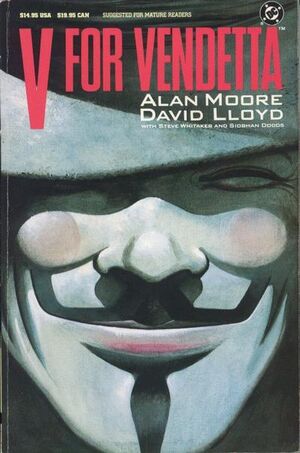
 ; such a form has taken hold specifically in England where, in reality, the Church of England (The Anglican Church) is 'established' with the Queen at its head and the state. This explains why, in story continuity, violent anti-Norsefire rebellion engulfs the non-Anglican parts of the United Kingdom (e.g. Scotland).
; such a form has taken hold specifically in England where, in reality, the Church of England (The Anglican Church) is 'established' with the Queen at its head and the state. This explains why, in story continuity, violent anti-Norsefire rebellion engulfs the non-Anglican parts of the United Kingdom (e.g. Scotland).






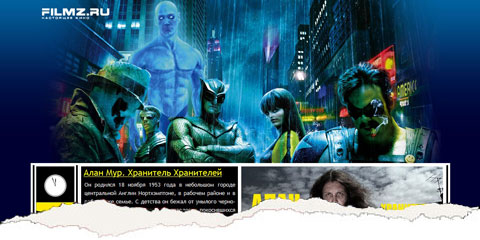






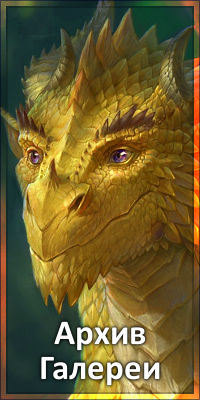


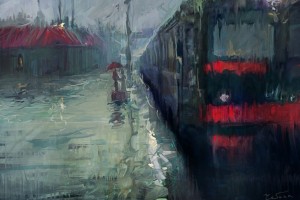

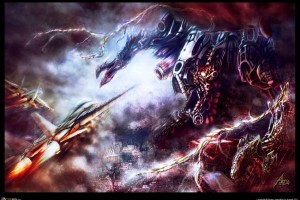

 2015 © ART-Talk.ru - форум про компьютерную графику, CG арт, сообщество цифровых художников (18+)
2015 © ART-Talk.ru - форум про компьютерную графику, CG арт, сообщество цифровых художников (18+)